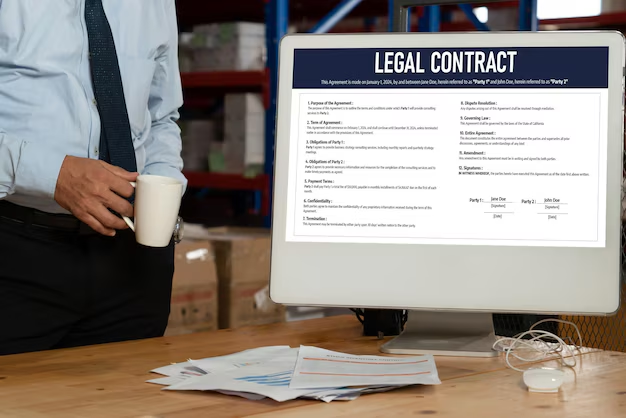When Does Jury Duty End? Understanding Your Day as a Juror
Imagine receiving a summons for jury duty and wondering, "What time does jury duty end?" This common question, nestled in the broader context of civic duty, has straightforward yet nuanced answers. While the basic concept is simple, the specifics can vary. Here, we explore typical jury duty schedules, factors affecting end times, and useful related information to help you confidently manage your day if you're called to serve.
🎯 Jury Duty Basics: What to Expect
At its core, jury duty is a civic responsibility where citizens participate in the legal system to ensure fair trials. It's an essential element of democracy, offering individuals a peek into the justice process. When summoned, you're asked to set aside time to potentially serve on a jury and contribute to decisions that uphold justice.
📅 Typical Schedule
Start Time: Court sessions generally begin in the morning, around 8:30 or 9:00 AM. Arrival is typically requested earlier to allow for check-in and preliminary announcements.
Midday Breaks: Expect a lunch break around noon, often lasting between one to two hours. This break is subject to the judge's discretion and the court's schedule.
Afternoon Sessions: Courts usually reconvene after lunch, continuing proceedings or jury selection. Afternoon sessions can last until late afternoon, around 4:30 or 5:00 PM.
📌 Key Factors Influencing Jury Duty Day Length
- Court's Caseload: The number of cases and their complexity can dictate how long you're required each day.
- Judge's Discretion: Each judge has unique courtroom management styles that affect daily schedules.
- Trial Stage: Whether it's jury selection, an ongoing trial, or deliberation can significantly impact your schedule.
- Jury Selection Process: This can be particularly time-consuming, often extending into the afternoon.
🛠️ Preparing for Jury Duty: Tips for a Smooth Experience
Approaching jury duty with preparation can alleviate some of the unpredictability related to end times.
✔️ Practical Tips
- Dress Comfortably: Dressing in layers helps accommodate varying courtroom temperatures.
- Bring Essentials: Items such as reading materials and snacks can help pass idle time, especially during jury selection.
- Understand Policies: Check if electronic devices are allowed. Many courts restrict usage, requiring them to be powered off during sessions.
📱 Notifications and Schedules
Courts often use technology to update jurors about schedules, including delays or cancellations:
- Automated Calls or Emails: Many jurisdictions provide updates via phone calls or emails the evening before your scheduled reporting time.
- Online Portals: Some courts include portals where jurors can check their status or reschedule appointments if necessary.
📖 A Day in the Life: Realities of Jury Duty
Experiencing jury duty firsthand varies from person to person. Here's what might happen once you reach the courthouse:
🚪 Check-in and Orientation
- Initial Check-in: Arriving early gives you time to check-in and receive instructions.
- Orientation: Courts typically offer a briefing on expectations, roles, and duties.
🎭 Jury Selection
A part of your day might involve participating in the jury selection process, known as voir dire. This involves being questioned alongside other potential jurors to determine suitability for a particular case. This process varies widely in length, adding unpredictability to your day.
⚖️ Serving on a Jury
Once selected, the duration of your commitment is likely longer, lasting days or weeks. End times each day remain subject to the trial's needs.
🤔 What If You Can't Complete Your Jury Duty?
Sometimes, circumstances prevent a juror from completing their duty.
Excusals and Deferrals
- Valid Excuses: Medical issues or financial hardship often serve as valid excuses for deferral.
- Process: Typically requires submitting a formal request, sometimes with documentation, such as a doctor's note.
🚀 Value of Serving: A Broader Perspective
While the specifics of when jury duty ends are practical concerns, serving holds broader significance. Jurors play a critical role in delivering justice and impacting societal structures. Those who serve frequently express a newfound understanding and respect for the legal system.
🎯 Summary and Key Takeaways
Here's a snapshot to keep in mind while preparing for jury duty:
- 🕒 Typical Day: Starts around 8:30 AM and may end at 4:30 or 5:00 PM.
- 📱 Stay Updated: Rely on court communications for any schedule changes.
- ❓ Uncertainty: Day length depends on court needs, caseload, and trial stages.
- 🔍 Be Prepared: Bring essentials and understand courtroom policies for a smoother experience.
Jury duty might feel like an imposition, but it's an opportunity to engage deeply with the justice system, bringing diverse perspectives to critical decisions. With this knowledge, approach your service with confidence and a clear understanding of what the day may entail.

